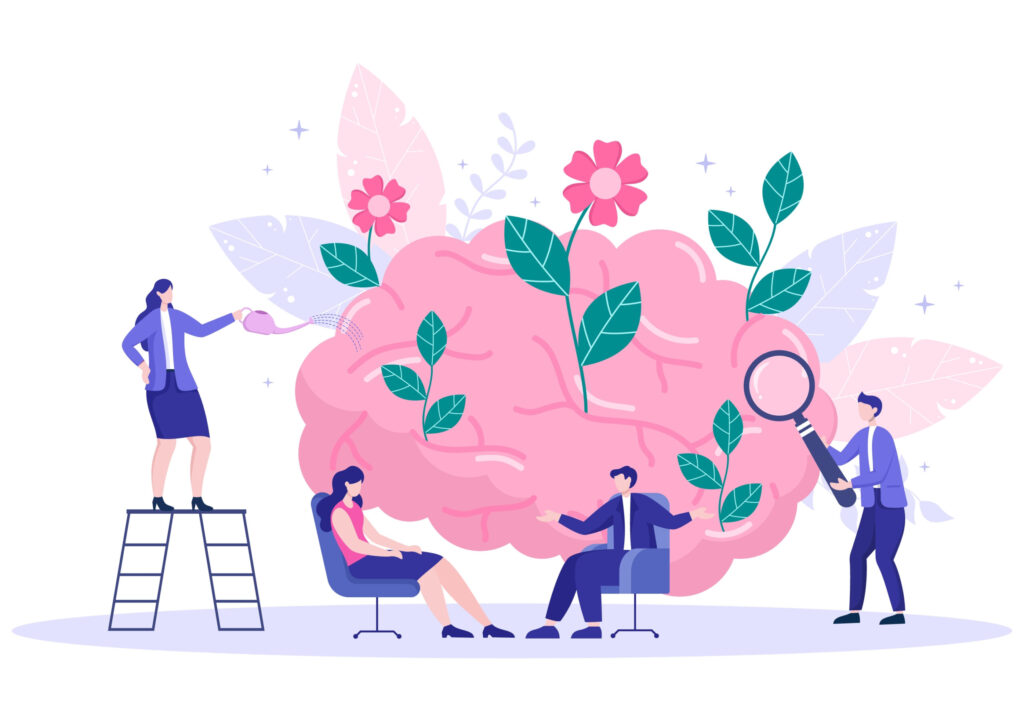By: Nick Azzarelli, LMHC

In today’s fast-paced and interconnected world, the conversation around mental health has become more crucial than ever. Despite the progress made in understanding and addressing mental health issues, there persists a pervasive and damaging force: stigma. I’d like to use this blog as an attempt to shed light on the stigma surrounding mental health, its impact on individuals and society, and the collective efforts needed to break free from its chains.
What is Mental Health Stigma?
I should start by explaining what exactly stigma is. Stigma refers to negative attitudes, beliefs, and misconceptions surrounding mental health conditions. It manifests in various ways, from discrimination and prejudice to social exclusion and even self-stigmatization. This ingrained societal bias often prevents individuals from seeking help and sharing their struggles openly. It begets issues in family interactions and romantic relationships as individuals attempt to sweep problems under the rug due to fear of social rejection, being seen as “weak”, or admitting that there may be issues in their “perfect relationships”. But nobody’s perfect. A lot of people are in the same boat but are too afraid to speak up. The truth is that there’s no shame in seeking help.
Again, stigma doesn’t just affect those living with mental health conditions; it permeates through families, workplaces, and communities. Individuals facing stigma may experience heightened stress, reduced self-esteem, and feelings of isolation, making their mental health challenges even more difficult to overcome. The fear of judgment often acts as a significant barrier to seeking the support they desperately need.

Media’s Influence on Stigma
I feel that the influence of media should be acknowledged briefly as well. The media we consume plays a significant role in shaping societal attitudes. Unfortunately, social media platforms and streaming services often perpetuate harmful stereotypes and sensationalize mental health issues to increase viewer traffic, further deepening the stigma. By promoting accurate portrayals and stories of resilience, media can be a powerful tool in dismantling these negative perceptions. This extends into the importance of celebrities and social media influencers acting as advocates for mental health awareness by utilizing their platforms to combat stigma. When high-profiles figures loved by the public come forward and share their own struggles and victories with mental health, it humanizes the experiences and encourages others to seek help without fear of judgement.
Ways to Combat Mental Health Stigma
Education can also be used as a weapon against stigma. Much of the stigma against mental health stems from a lack of knowledge or awareness of the issue at its core. Promoting an understanding of mental health can help dispel myths, challenge stereotypes, and foster empathy. Schools, workplaces, and communities should prioritize mental health education to create an environment of understanding and support. A step in the right direction would be to begin using and encourage the use of person-first language. Simply put, it normalizes and humanizes mental health concerns but structuring language in a way that quite literally puts the “person first”. An example would be referring to someone as a “person struggling with depression” rather than a “depressed person”. It goes without saying that refraining from the use of derogatory terms to describe mental health disorders would also contribute to more compassionate dialogue. Ultimately, encouraging open conversations about mental health will normalize its place in common discussion and break down barriers.
When it comes to primary healthcare services, integrating mental health is essential for early detection and intervention. By making mental health services more accessible through routine check-ups with primary care physicians, individuals may feel more comfortable addressing concerns before they escalate. This approach could reduce the stigma associated with specialized mental health services and while emphasizing the interconnectedness of physical and mental well-being. In an ideal future, healthcare providers would receive training to recognize and address mental health issues as part of their standard practice, creating a holistic approach to overall health.
Peer-led initiatives could also play a crucial role in breaking the stigma against mental health. Individuals who have lived experience with mental health challenges can offer unique insights and support. Empowering peer support networks, via both online and offline groups, provides a sense of community for those facing mental health issues. Peer support encourages individuals to seek help, knowing that they are not alone in their struggles. These initiatives could contribute to the small start of a movement that challenges societal norms and fosters an environment of acceptance and understanding.

Breaking the stigma against mental health is a complex but essential undertaking for promoting a healthier and more compassionate society. Through education, open conversations, responsible media portrayal, and increased access to mental health services, we can challenge the misconceptions that perpetuate stigma. Embracing a collective responsibility to prioritize mental health will not only improve individual well-being but also contribute to building a more understanding and supportive community. It is -me to recognize the strength and resilience of those facing mental health challenges and work together to create an environment where seeking help is not only accepted but encouraged.





